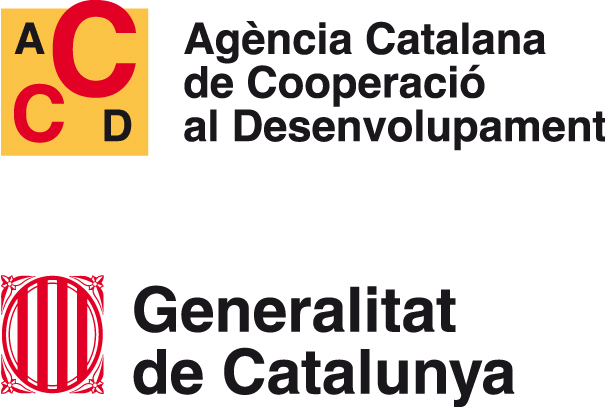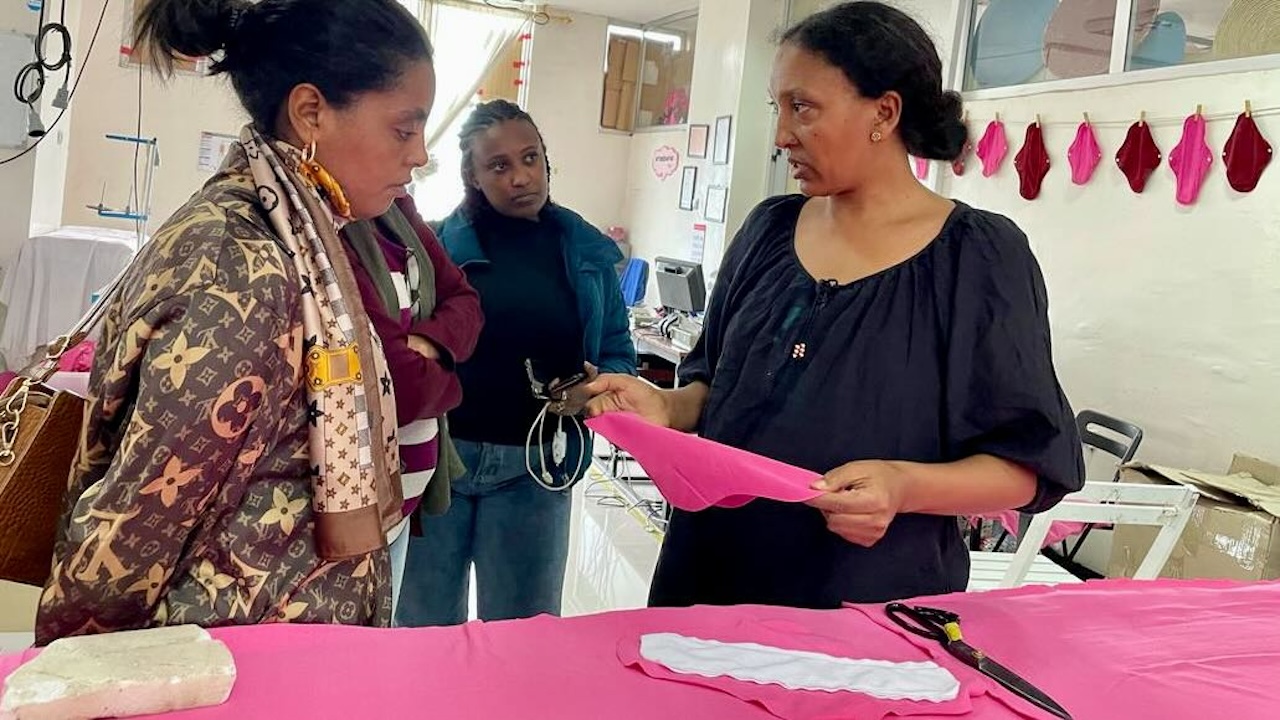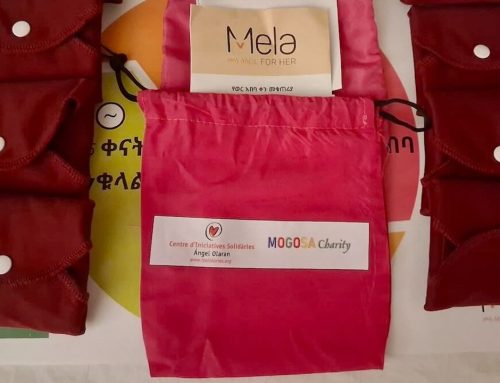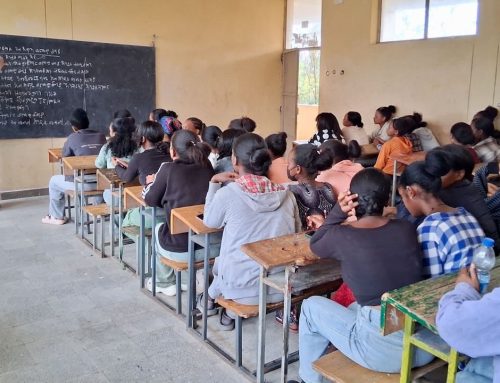Reusable pads: how a sustainable solution is improving lives in Wukro, Ethiopia
Changing the world sometimes starts with a small pink cloth pad. Among the products of Mela for Her are reusable pads: a sustainable solution that is improving lives in Wukro, Ethiopia. But what exactly is the impact of a reusable pad compared to a traditional one? The answer has many sides: it’s an impact on health, on household economy, on the environment, and on the empowerment of entire communities. Let’s break it down point by point.
From menstrual poverty to sustainable solution
Mela (መላ in Amharic) literally means “solution.” And that’s exactly what this Ethiopian social enterprise provides: a local and sustainable solution to menstrual poverty. The challenge is huge: in Ethiopia, only 28% of women have everything they need to manage their menstruation hygienically. Most are forced to use unsafe alternatives, while commercial disposable products are expensive and often hard to find outside of urban areas. Furthermore, menstruation is surrounded by misinformation and stigma. In response to this, Mela for Her was founded in 2020 with a clear mission: to manufacture affordable, high-quality reusable pads and distribute them across the country along with menstrual education.
The Mela for Her model has a strong social component. Their products are handcrafted in a workshop in Addis Ababa, where women—many from vulnerable neighborhoods or facing barriers to employment—work. Through Mela, they receive training in sewing and other skills (like quality control, sales, and management) and earn a fair wage. In other words, each MELA pad empowers twice: it empowers the person who will use it, and it empowers the woman who made it, granting her financial independence. This “social enterprise” philosophy ensures the impact goes far beyond the product itself.
Additionally, Mela works with networks of women distributors in rural areas. To break taboos and reach communities where talking about menstruation or selling menstrual products in public is difficult, Mela has trained female entrepreneurs who sell the pads door to door, woman to woman. This builds trust (it’s easier to buy and talk about it in private) and creates income opportunities for these community agents. Picture one of these women in the Mela project, in a remote village, now visiting homes to explain the benefits of cloth pads and sell them at an affordable price. She earns a commission for each sale, and her neighbors gain a solution for their hygiene needs. Altogether, it creates a virtuous circle of female support.
In the case of Wukro, the arrival of Mela for Her products through dignity kits and training has been especially significant in the project Empowerment of Girls, Adolescents, and Women in Wukro, Tigray (Ethiopia). After the war, the Tigray region was isolated without basic supplies for many months. Even now, regularly obtaining disposable pads is difficult (there’s a shortage, and prices have skyrocketed). Mela’s reusable pads are a lifeline in this context because they don’t rely on a constant supplier: with just a few units, each girl can meet her needs for years. This makes them ideal for humanitarian or post-conflict settings like Wukro.
Benefits for health, economy, and the planet
Choosing reusable menstrual products like those from Mela for Her generates a ripple effect of benefits. Some of the most notable impacts include:
• Health and well-being: MELA pads are made from breathable, safe fabrics free of harmful chemicals. This helps prevent irritation and infections that can come from unhygienic homemade solutions (like using dirty rags). Users report feeling more comfortable and protected; they no longer have to worry about leaking blood or getting an infection. Additionally, knowing they can manage their periods brings reduced stress and anxiety during those days.
• Household economic savings: A woman may spend up to €2,500 over her lifetime on disposable menstrual products. This is unaffordable for families like those in Wukro, where many live on less than €2 a day. Reusable pads change the equation: they can be washed and reused for 2 to 3 years each, saving over 95% of the cost. For a mother with teenage daughters, having reusable kits means freeing up resources for other essentials (food, school books, medicine…).
• Waste reduction and sustainability: Did you know that a single disposable pad can take up to 500 years to decompose? They’re made almost entirely of plastic. It’s estimated that each woman produces about 200 kg of pad and tampon waste in her lifetime. In contrast, cloth pads are eco-friendly: each one replaces hundreds of disposable pads. Thanks to the project, thousands of pads won’t end up polluting the soil and water of Wukro. 🌍 This ecological approach is also educational: young girls learn the importance of caring for the environment while caring for themselves.
• Empowerment and confidence: Beyond the savings and health aspects, there’s a deep and intangible change: self-confidence. Having control over menstruation allows girls and women to fully participate in society every day of the month. They no longer isolate themselves or feel like they “can’t” do things because of their period. This results in more girls finishing school, more women keeping their jobs, and more women becoming agents of change in their communities. When a woman is not limited by her biology, she can reach her full potential.
• Employment and local development: Every MELA product purchased or distributed supports a model of social economy. As mentioned, there are women behind these pads, sewing and earning a dignified living. There are also trainers, logistics coordinators, rural distributors… a whole ecosystem providing jobs to dozens of people (especially young women) in Ethiopia. This job creation is vital in a country where female unemployment is high. Furthermore, Mela for Her reinvests profits into expanding the project and reaching more communities, creating a positive multiplying effect.
Overall, Mela for Her products are not just pads; they are tools of emancipation. They represent a paradigm shift: they show that solutions to community problems can arise from within the community itself. Instead of relying on costly imports or constant donations of disposable pads, Wukro (and Ethiopia) can produce and distribute its own sustainable solutions. This is self-management, sovereignty, and resilience in the face of adversity.
A woman who has worked at Mela sewing pads for years, who once had no personal income, can now support her family and, at the same time, knows her work helps other women. She knows the pads she makes reach girls in Tigray who lost everything due to the war. It’s deeply moving for her and makes her proud to contribute to their dignity. – This is the testimony of a Mela for Her artisan in Addis Ababa.
This initiative proves that small actions can have a huge ripple effect. A teenage girl who no longer misses school because of her period has a better chance at getting an education, finding a qualified job, and breaking the cycle of poverty. A group of women producing pads generates income and can make decisions in their households. A village that manages its waste well will live in a healthier environment. Everything is connected. And these simple reusable menstrual products have become a catalyst for some of these changes.
🌟 Call to action
Do you want to be part of this quiet revolution? With your support, through the project Empowerment of Girls, Adolescents, and Women in Wukro, Tigray (Ethiopia), we can reach even more girls and women in need. Make a donation or choose sustainable menstrual products. Every contribution helps reduce menstrual poverty and multiplies the positive impact in communities like Wukro. Help us grow the solution! 💜
👉🏽 Join us on this journey!
If this post inspired you, we invite you to also read: Breaking Taboos: How Menstrual Education is Changing the Lives of Adolescent Girls in Wukro, Ethiopia.
With the collaboration of









